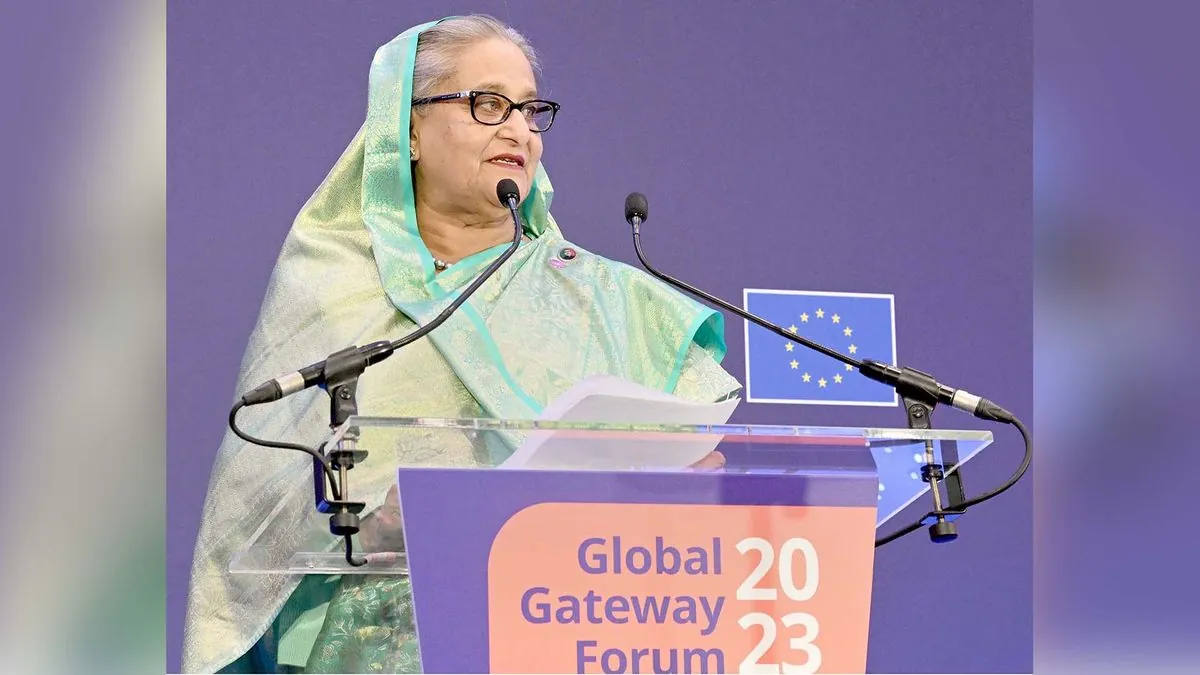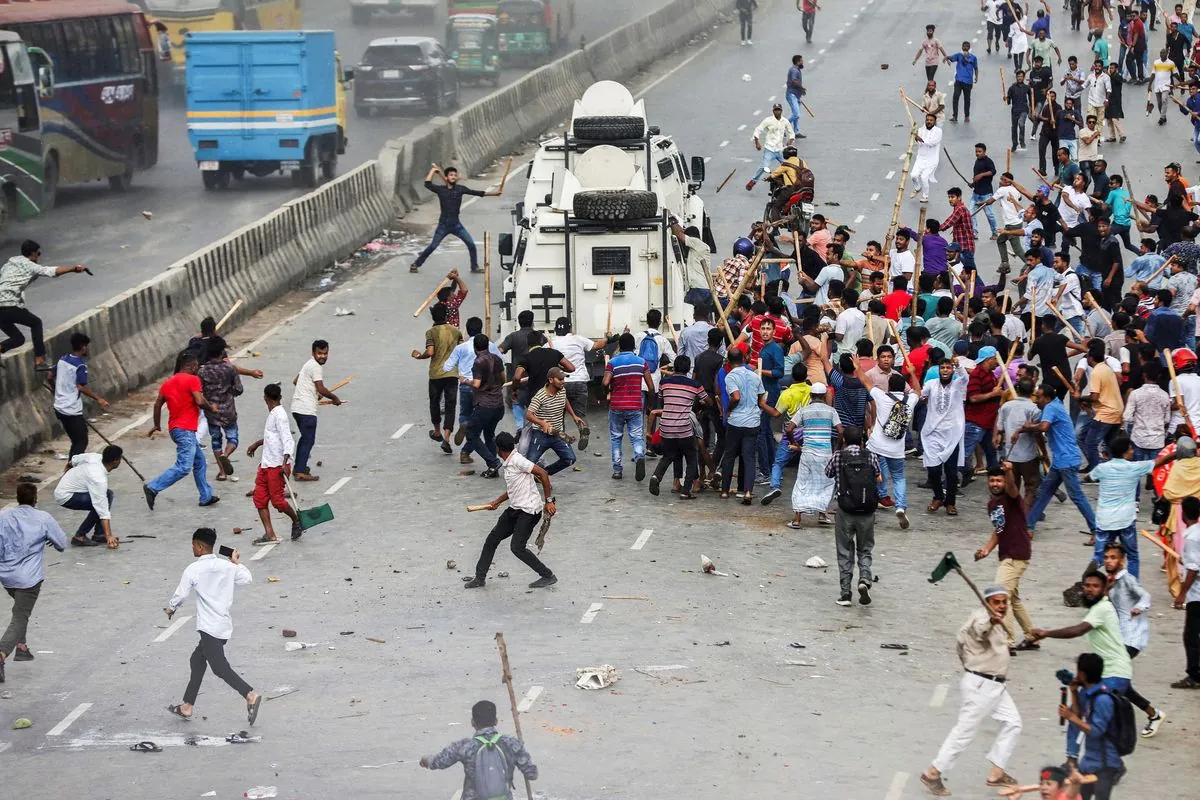Former Bangladesh PM Calls for Probe into Deadly Protests
Sheikh Hasina demands investigation into July violence that forced her to flee. Court orders inquiry into her role in protester's death, as criminal actions against former officials unfold.

In a significant development, Sheikh Hasina, the former Prime Minister of Bangladesh, has called for an investigation into the violent protests that occurred in July 2024. This marks her first public statement since the unrest forced her to seek refuge in India.
The protests, which initially began as demonstrations against employment quotas, escalated into a movement demanding Hasina's removal from office. Tragically, the violence resulted in approximately 300 fatalities. Hasina expressed her concern, stating:
"Many people died in the name of revolution in July. I demand that those involved in these killings and vandalism be properly investigated and the culprits be identified and punished accordingly."

The former prime minister's call for action comes amidst legal challenges. A Dhaka court has ordered an investigation into Hasina's role in the death of a grocery shop owner during the protests. The case, filed by Amir Hamza, an ordinary citizen, also implicates six other individuals, including Obaidul Quader, the general secretary of Hasina's Awami League party, and former Interior Minister Asaduzzaman Khan Kamal.
Hamza, explaining his motivation, said, "I am the first ordinary citizen who showed the courage to take this legal step against Sheikh Hasina for her crimes. I will see the case to an end."
The political landscape in Bangladesh has been tumultuous, reflecting the country's complex history. Since gaining independence from Pakistan in 1971, Bangladesh has experienced periods of political unrest, military coups, and assassinations. Despite these challenges, the nation has made significant strides in various sectors, including economic growth, poverty reduction, and women's empowerment.
As the world's eighth most populous country, Bangladesh faces numerous challenges, including climate change impacts and natural disasters. However, it has also shown resilience and progress, particularly in its rapidly growing economy and garment industry.
The current situation highlights the ongoing struggle for political stability in Bangladesh. The caretaker government system, designed to oversee elections, is now tasked with navigating this complex political landscape.
Nahid Islam, a student leader now part of the interim government, has stated that Hasina must face trial for the killings during her term. Meanwhile, Hasina's son has indicated that she plans to return to Bangladesh when the caretaker government decides on holding elections.
As Bangladesh grapples with these political challenges, it continues to strive for progress in various areas, including education, literacy, and cultural preservation. The country's rich heritage in literature and arts remains a source of national pride, even as it confronts its political difficulties.
The unfolding events in Bangladesh serve as a reminder of the delicate balance between political stability and democratic processes in developing nations. As the investigation into the July protests proceeds, the world watches to see how Bangladesh will navigate this critical juncture in its political history.


































